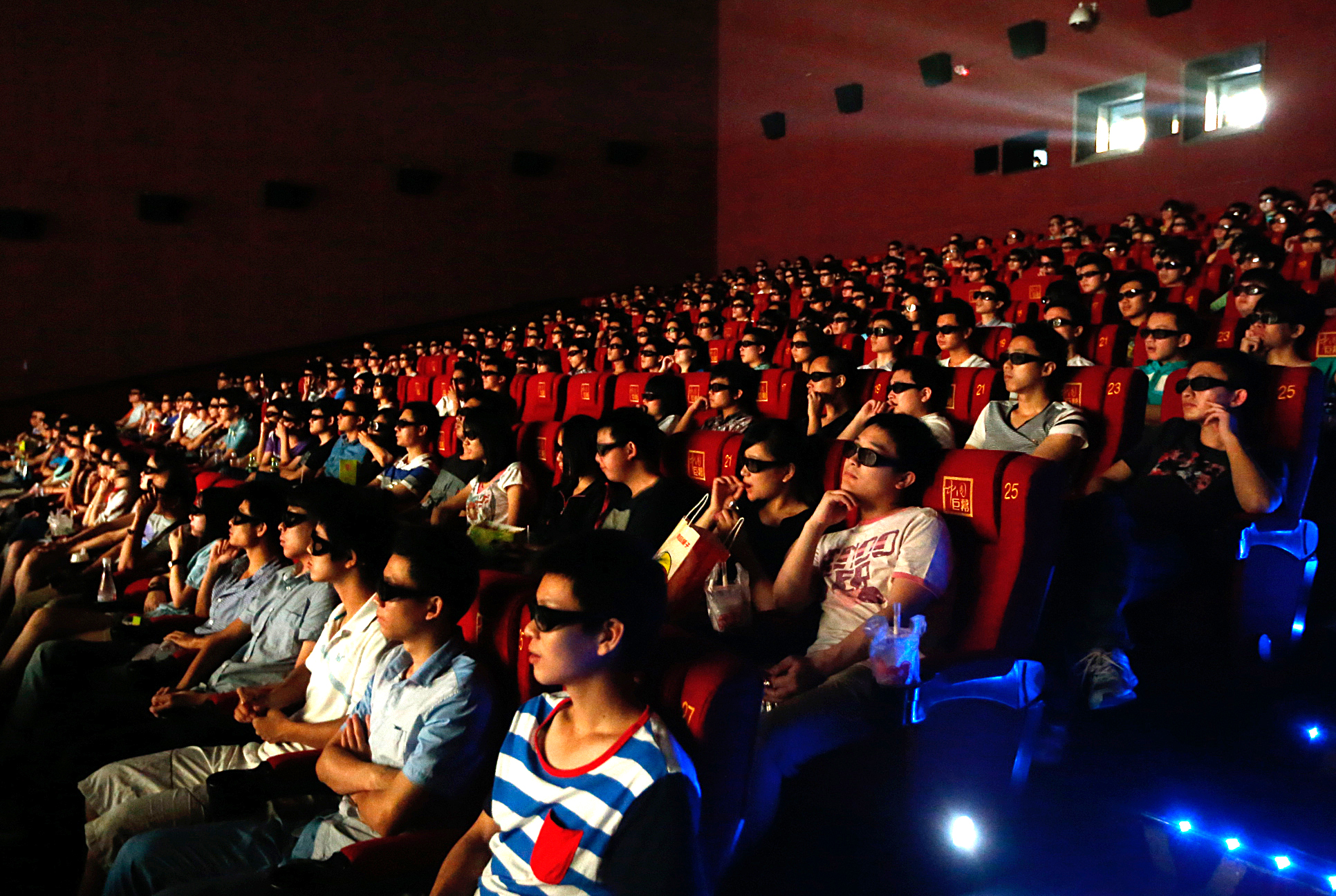
This summer, cinema-goers in China will be greeted by the many faces of its booming film industry at the start of every screening telling them about the Communist Party’s latest directives and policy visions.
A series of four videos called The Glory and the Dream — Our Chinese Dream, billed as PSAs by authorities, have been playing in all theaters since July 1, according to an official notice posted Wednesday. They screen before local films and Hollywood blockbusters alike.
The propaganda clips “are aimed at helping the public better understand and accept the policies and visions of the Party,” explains the State Administration of Press, Publication, Radio, Film and Television, which initiated the move.
Each of the four clips promotes one key slogan or idea emblematic of President Xi Jinping’s administration: the “Chinese Dream,” the “Core Values of Socialism,” the “Four Comprehensives,” and the catchily named “Five-in-one Overall Arrangement.”
“Beijing seems determined to exercise ever greater control, injecting itself even into entertainment,” says Kevin Carrico, a lecturer of Chinese studies in Macquarie University. “This grows out of the very simplistic and antiquarian nature of Beijing’s propaganda [and] media system in contrast to the complexity of contemporary Chinese society.”
Up to 32 Chinese celebrities — including A-listers like Jackie Chan and Li Bingbing, as well as Donnie Yen, late of Rogue One — have been recruited to make the Party’s message more digestible for audiences. (They all took part in filming pro bono, according to authorities.)
Read More: According to Chinese Propaganda, Children Around the World Just Love Beijing’s Trade Policies
“Only when the country and the nation fare well, will everybody fare well,” a grinning Chan says to the camera against a grey backdrop. “Only when everyone fights for a beautiful dream, can they come together with the tremendous power to realize the Chinese dream,” he continues.
“Whatever your occupation, you’re giving power to the Chinese dream as long as you can face the country, social, the nation and the family,” a smiling Li — featured in Transformers: Age of Extinction — tells the audience.
Yen, meanwhile, is among many other who recite verses written in classical Chinese; some of the text dates back to the Confucian period, while the couplet Yen reads was written by Mao Zedong.
“There is some degree of sophistication to this latest propaganda salvo,” says Willy Lam, a longtime China observer at the Chinese University of Hong Kong. “The fact that the Chinese dream-related slogans are spoken by well-known movie and cultural personalities might attract the attention of a part of the audience.”
But even state-run media acknowledge that response to the move has been mixed at best. While the tabloid Global Times cited some favorable reviews, it also quoted a theater employee saying that many ticket-holders came late just to skip the clip.
“The million dollar question,” Carrico tells TIME, “is when people will get [openly] tired of this.”
Adds Willy Lam: “Most Chinese, especially young people, are very fed up with in-your-face state propaganda. It’s doubtful whether cinema-goers will actually pay any attention to the slogans.”
More Must-Reads from TIME
- Donald Trump Is TIME's 2024 Person of the Year
- Why We Chose Trump as Person of the Year
- Is Intermittent Fasting Good or Bad for You?
- The 100 Must-Read Books of 2024
- The 20 Best Christmas TV Episodes
- Column: If Optimism Feels Ridiculous Now, Try Hope
- The Future of Climate Action Is Trade Policy
- Merle Bombardieri Is Helping People Make the Baby Decision
Contact us at letters@time.com